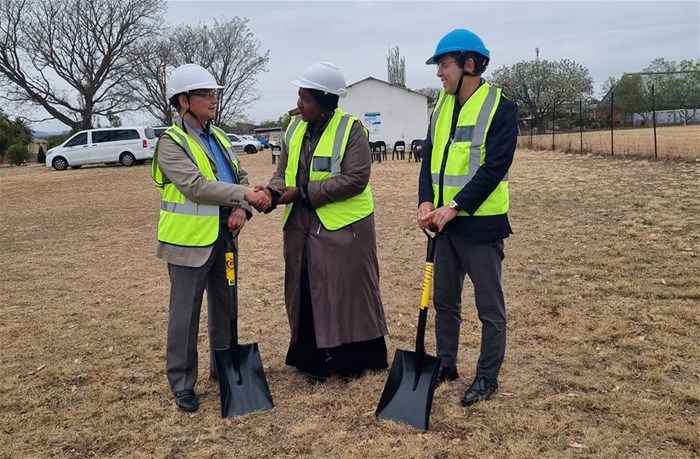
Headmistress Sibongile Tshabalalasaid the new additions would enable the school to extend its support to the local community and better cater for its cohort of nearly 70 learners with special needs. One classroom will provide for a more conventional learning environment, while a second larger classroom will be used to accommodate physical activities.
Tshabalala, an educator, started the school when her own son with dyslexia was turned away from mainstream schooling. “My child was diagnosed with dyslexia, and I struggled to find a school for him that would be able to cater to his needs. He was caught between mainstream schools and schools that catered for children with specific disabilities. I knew that I had to do something to help him, and the idea was born to create a special school to equip him with skills that he can use as an adult and be independent,” said Tshabalala.
She registered her school and began lessons in a self-funded, rented, three-bedroom house. When the rent increased, her school found a new home at a local church. However, the layout of the church hall was not conducive to learning, and Tshabalala, through many discussions with local community leaders, was handed an overgrown piece of land belonging to a local school to use as the location of her school. With a donation of containers to use as classrooms and many months of hard labour, the school and its grounds took shape. Other facilities on the site were built using unwanted planks as well as broken pieces of tiles pieced together to form the floors.
The school curriculum consists of Basic English, Reading and Mathematics, Computer Literacy, Visual Arts, Performance Arts, Beadwork and Sewing. The pupils are aged between five and 18 years old, and the skills they acquire at school enable them to be employed and earn an income.
“We are so thankful to God and to Dunlop for joining us and contributing to our vision. There is a demand for the type of skills we develop at our school for children with special needs. With this donation of additional learning space, we can accommodate more children and offer a better environment to learn in, so that they can leave here with skills to be independent adults,” said Tshabalala.

The new buildings will be sustainably constructed by Natural Building Collective, which is partnering with Dunlop manufacturer, Sumitomo Rubber South Africa, on the project.
The two will be using sustainable building and circular economy principles in the construction, including natural and upcycled building materials – primarily rammed earth waste tyres from the Dunlop plant – as well as glass bottles supplied by the community for windows, locally made coal-ash bricks produced from waste from the Dunlop plant, roof rainwater harvesting, and a passive solar design.
Sumitomo Rubber SA CEO, Lubin Ozoux, said: “Dunlop has been honoured to celebrate this wonderful occasion of 50 years of manufacturing excellence at our Ladysmith plant, with our people, our community and their families. We are grateful to be able to support an institution such as Ithubelihle Special Opportunity School, which plays an important role in providing care and education to children in the community. Importantly, the sustainable building principles of this project align with our journey to achieve net zero carbon emissions by 2050.”
During the 50th anniversary visit, Headmistress Tshabalala shared the school’s journey of growth with guests including Ushio Shigeru, ambassador of Japan to the Republic of South Africa, Satoru Yamamoto, president and CEO of Sumitomo Rubber Industries Lubin Ozoux, and chief executive officer of SRSA.
Peter McIntosh, founder of Natural Building Collective, said, “We have been able to demonstrate that building with tyres is viable and competes with and exceeds conventional building standards. Tyre building costs are less than that of conventional buildings when comparing like for like. They are more durable, perform better thermally, and address the climate crisis. Tyre building is also inspirational, creating beautiful buildings that lead to connection with both the community in which they are built and those that build them. While the material costs may be less, as the goal is to use what is available and upcycle, it does require a lot of labour, creating employment in the communities the buildings are built in.”
Natural building skills will be transferred to the local building constructor and local construction employees during the project.